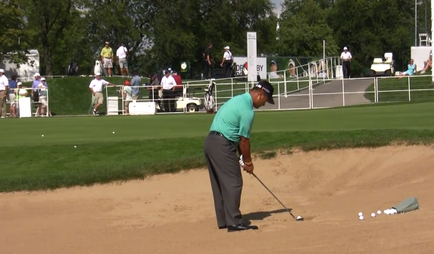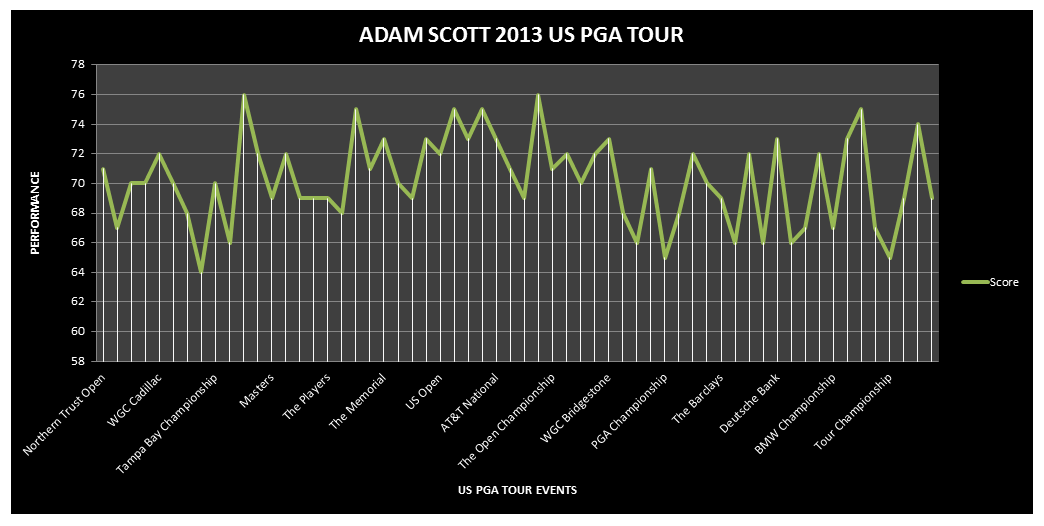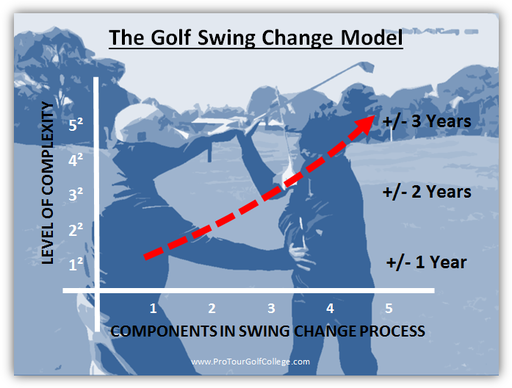 K.J Choi has a plan for continually getting better, do you? K.J Choi has a plan for continually getting better, do you? Do you have a structure or framework for getting to a low score average so you can qualify to play on a professional golf tour? Do you have some sort of plan or defined purpose for achieving your golf swing goals? Or do you just take it as it comes and do what feels right at the time? Possibly you might be a golfer that does a bit of both, a little bit plan and a little bit of take it as it comes. How about timelines? Do you have an idea of when you want to go to a qualifying school and what needs to be improved before you get there? Whichever way you look at it, I’m sure that you would agree that advanced golfers will perform better when they have a definitive idea of how, where and when they plan to achieve their goal of being ready for qualifying school? But can we be confident enough to believe that we can achieve our plan when we want to? Yes we can plan to achieve a certain goal by date x, but we always need to take into account the many variables that might get in the way of being able to achieve our swing change goal by a particular time.  Justin Rose and his coach Sean Foley have a plan for improvement. Do you? Justin Rose and his coach Sean Foley have a plan for improvement. Do you? Here’s a question for you to answer. Imagine it's January and let’s say that you were going to go to Asian tour qualifying school in 12 months’ time. Right now your score average in competition is 74 and you have just started taking a series of golf lessons with a reputable swing coach to improve an aspect of your full swing technique. The reason you're doing this is because you believe that it will help you to get your score average down to 71 so you can go to Q School with confidence. At face value this seems like a reasonable approach to getting to your goal and is a relatively common approach for getting ready for a tour school. The trouble is that it’s reasonable – just not ideal. Simply put, there are a number of questions to consider when lowering your score average by three strokes in 12 months, like why you would be leaving it so late to make such a drastic attempt to lower your score average? This raises another question, like why you have decided that a swing change/improvement will be your primary strategy for lowering your score average by three. Depending on the complexity of your swing change, you need to assess the level of change and determine a timeline for achieving it. Is it possible to improve your golf swing and lower your golf score by three within 12 months? I'm sure it has been done before, but in our experience it is not likely to happen within this timeline. Golf Scores Are Erratic Golf scores fluctuate from day to day in erratic patterns. There is nothing consistent about them and trying to lower your score average by focusing on making a swing change within a compressed time period can be a disaster waiting to happen. Have a look at one of the best golfers in the world Adam Scott and take note of the erratic nature of his golf scores over a season on the PGA Tour. Adam's score average (actual) was 70.25 in which ranked him 15th on tour and as good as he is notice the high scores throughout the season and how he balances this with low scores which is how we arrive at his score average. Adam's first score of the season on the tour was a 71 at the Northern Trust Open and his last score of 69 was in the Tour Championship. From the 58 competitive rounds within these rounds on the PGA Tour he was able to reduce his actual score average by .75. Now Adam is not making any major swing changes to be able to accomplish this result, he's simply working on the weakest skills that he can manage whilst travelling around the US on tour. If you are considering going to tour qualifying school in 12 months you would have to make sure that the change you were making to your technique was very minor so that it doesn't affect your ability to score. This rarely happens, especially with compressed timelines. Time Compression Increases Pressure When you compress time you increase pressure, and a swing change whether minor or major requires more respect than that. How long does it take to learn and change a swing habit? It depends on how you learn it, but it requires the amount of time it takes for you to learn it so you are able to perform it under the pressure of tournament pressure. Tour school is the kind of pressure that brings even the best learned methods undone. The Golf Swing Change Model
How do you manage swing change within a time period? Good question. You will find it helpful to use our swing change model that we developed and use at Pro Tour Golf College to manage swing change. When changing a swing the first question to consider is the level of complexity of the change. What this means is how many individual components make up the change. Do you have one thing to think about and coordinate in your technique or do you have more? In our model the simplest change is just one component which ranks low in complexity on our swing change scale. One squared equals one. Two squared equals four, which is four times more difficult to change as one component is. Three squared equals nine which is nine times more difficult to change as one component. And on it goes... Golf Swing Levels of Change
The level of complexity (amount of components to change), the amount of repetitions (correctly executed), and the quality of the golf instruction will ultimately determine how long your swing change will take. It is always longer than you think and our model is based on advanced and elite golfers making changes to golf swing techniques that are at the autonomous stage or the unconscious competence stage of learning. It is probably easier to work on other areas within your game within the 12 months to help you reduce your score average by three strokes without having to modify your golf stroke. In next weeks article I'll show you how to design a periodized plan for the year to help you to manage swing change and also lower your golf scores so you can give yourself the best shot possible of not only getting to tour school in 12 months, but also qualifying to play for pay. Lawrie Montague and David Milne - Pro Tour Golf College Your Success On Tour is Our Business Comments are closed.
|
Archives
June 2019
|
Proudly Supported By
Copyright © 2011 - 2018 Pro Tour Golf College
Website Managed By Golf Performance Media
All Rights Reserved
Website Managed By Golf Performance Media
All Rights Reserved




 RSS Feed
RSS Feed



